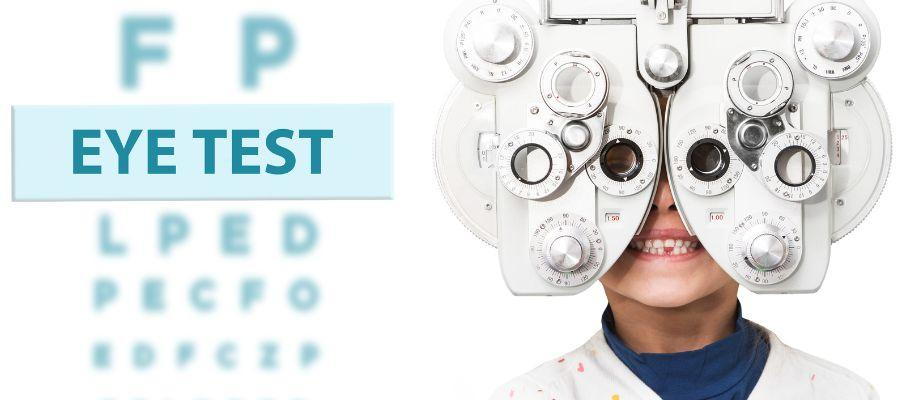
Why Are Eye Exams Important?
Embarking on a journey to discover the significance of eye exams can lead you to unexpected insights. This fascinating article explores the critical role that regular eye tests play in maintaining optimal vision and overall health. It particularly spotlights the extraordinary professional service provided by Dr. Joseph Tegenkamp at the esteemed Fifty Dollar Eye Guy clinics in Pensacola, Florida. Affordability, quality care, and the personal touch in each consultation makes this place stand out while resonating with the importance of eye examinations.
Understanding the Importance of Eye Exams
Overview of eye exams and their importance
Eye exams are not just about checking whether you need glasses or not. It's a comprehensive eye health checkup. Regular eye exams are vital to maintaining good vision and to help detect any potential eye problems before they become severe. A comprehensive eye examination involves a series of tests that look at your vision and ability to focus. It can also detect conditions like glaucoma, macular degeneration, and cataracts at their earliest stages.
How often should eye exams be conducted
The frequency of eye exams varies by age and risk factor. For instance, adults should generally have their eyes examined every one to two years. For children, their first eye exam should be before they start school, and then every two years thereafter. If you have a history of eye disease in your family, it is recommended to have your eyes examined more frequently.
Eye Exams and Vision Health
Role of eye exams in maintaining good vision
Preventative care, like routine eye exams, is key to maintaining good eye health. Eye exams help ensure that your eyes are functioning at their best and can also detect any potential issues before they become serious.
Eye exams and detection of vision problems
Early detection of vision problems through comprehensive eye exams is crucial. It allows your eye doctor to start a treatment plan that can slow or even halt the progression of the disease. Without regular eye exams, these conditions might not be caught until they've done significant damage.
Treatment options for common vision issues
Common vision issues like nearsightedness, farsightedness, and astigmatism can often be corrected with prescription glasses or contact lenses. More severe conditions like cataracts, glaucoma, and retinal diseases might require more invasive treatments, like surgery.
Detection of Serious Eye Conditions
Understanding serious ocular diseases
Serious eye conditions include glaucoma, age-related macular degeneration, and diabetic retinopathy. These conditions can lead to irreversible vision loss if not detected and treated early.
How eye exams can detect these diseases
Regular, comprehensive eye exams play a key role in the early detection of serious eye diseases. Your eye doctor can identify signs of these conditions before you might notice any changes in your vision.
The role of early detection in eye disease management
Early detection of eye diseases allows for a wider range of treatment options and a better chance of slowing or stopping the progression of the disease. If left untreated, some conditions can lead to vision loss.
Eye Exams and Systemic Health
Link between eye health and overall health
Your eyes are a window to your overall health. Many systemic diseases, like diabetes and high blood pressure, can be detected during a comprehensive eye exam, often before you show any other symptoms.
Role of eye exams in detecting systemic diseases
During an eye exam, your doctor can observe and evaluate the health and condition of the blood vessels in your retina, which are a good predictor of the health of blood vessels throughout your body. Changes in these vessels could signal systemic diseases.
Case studies of early disease detection through eye exams
There have been numerous cases where a routine eye exam has discovered signs of more serious systemic health issues. For example, swelling of the optic nerve can indicate a brain tumor, while yellowing of the eyes might signal liver disease.
Eye Exams and Children
Importance of eye exams for children
Regular eye exams are especially important for children because their vision can change rapidly as they grow. Undiagnosed vision problems can affect their academic performance and social interactions.
How eye exams can affect academic performance
Since a significant portion of a child's learning is visual, good eyesight is critical to their academic success. Eye exams can detect issues early, making it possible for your child to receive the necessary treatment for healthy vision.
Addressing common vision problems in children
Common vision problems in children such as nearsightedness, farsightedness, and lazy eye can often be resolved with corrective eyewear or vision therapy. Early detection through regular eye exams can lead to more successful treatments.
The Eye Examination Process
What to expect during an eye exam
During an eye exam, your eye doctor will ask you about your medical history and any vision problems you might be experiencing. You'll undergo a series of tests to measure your visual acuity and check for common vision problems.
Types of tests included in an eye exam
Eye exams usually include tests such as a visual acuity test, cover test, and a retinal examination. They may also include tonometry, which measures eye pressure to check for glaucoma, and dilation which allows your eye doctor to see more of the inside of your eyes.
How to prepare for an eye exam
To prepare for an eye exam, bring a list of any prescription medications you're currently taking. Inform your doctor of any health changes since your last visit. If you wear glasses or contacts, bring them along too.
Choosing the Right Eye Doctor
Qualifications to look for in an eye doctor
When choosing an eye doctor, look for qualifications such as board certification and a degree from a reputable institution. They should also be licensed to practice in your state.
Importance of rapport with your eye doctor
Having a good rapport with your eye doctor is key to receiving personalized care. A doctor who knows you and understands your health history can provide the best advice for your specific needs.
Dr. Joseph Tegenkamp and the 50 Dollar Eye Guy clinic
At 50 Dollar Eye Guy, you will find a friendly and professional team headed by Dr. Joseph Tegenkamp. They are dedicated to providing exceptional customer service and comprehensive eye exams to ensure the best possible vision care for their patients.
Cost and Affordability of Eye Exams
Understanding the cost of eye exams
The cost of an eye exam can vary depending on where you live, who performs the exam, and whether or not you require corrective lenses.
Insurance and eye exams
Most health insurance plans provide coverage for routine eye exams and corrective lenses. It's important to contact your insurance provider to confirm the specifics of your coverage.
Affordable eye care at 50 Dollar Eye Guy
Providing affordable eye care for their patients is a priority at 50 Dollar Eye Guy. They believe that everyone should have access to high-quality eye care without breaking the bank.
Overcoming Fear of Eye Exams
Common fears associated with eye exams
Fear of eye exams can stem from fear of the unknown, concern about the results, and fear of discomfort during the examination process.
How to prepare and overcome these fears
The best way to overcome these fears is to become familiar with the eye examination process, ask your doctor any questions you may have, and remind yourself of the importance of maintaining your eye health.
The reassuring approach at 50 Dollar Eye Guy
At 50 Dollar Eye Guy, they understand that eye exams can be daunting. They take a reassuring approach, ensuring their patients are comfortable and well-informed throughout the process.
Fallacies and Myths around Eye Exams
Common myths related to eye exams
There are many myths related to eye exams, like believing you don’t need regular eye exams if you have perfect vision or the misconception that you should only get an eye exam when you’re experiencing symptoms.
Debunking these myths
Regular eye exams are important for everyone, regardless of your age or physical health. Eye exams can detect eye problems at their earliest stage when they're most treatable.
Spreading correct information regarding eye health
Educating yourself and others about the importance of regular eye exams can lead to healthier vision and overall wellness. Remember, your eye health is an essential part of your overall health.





